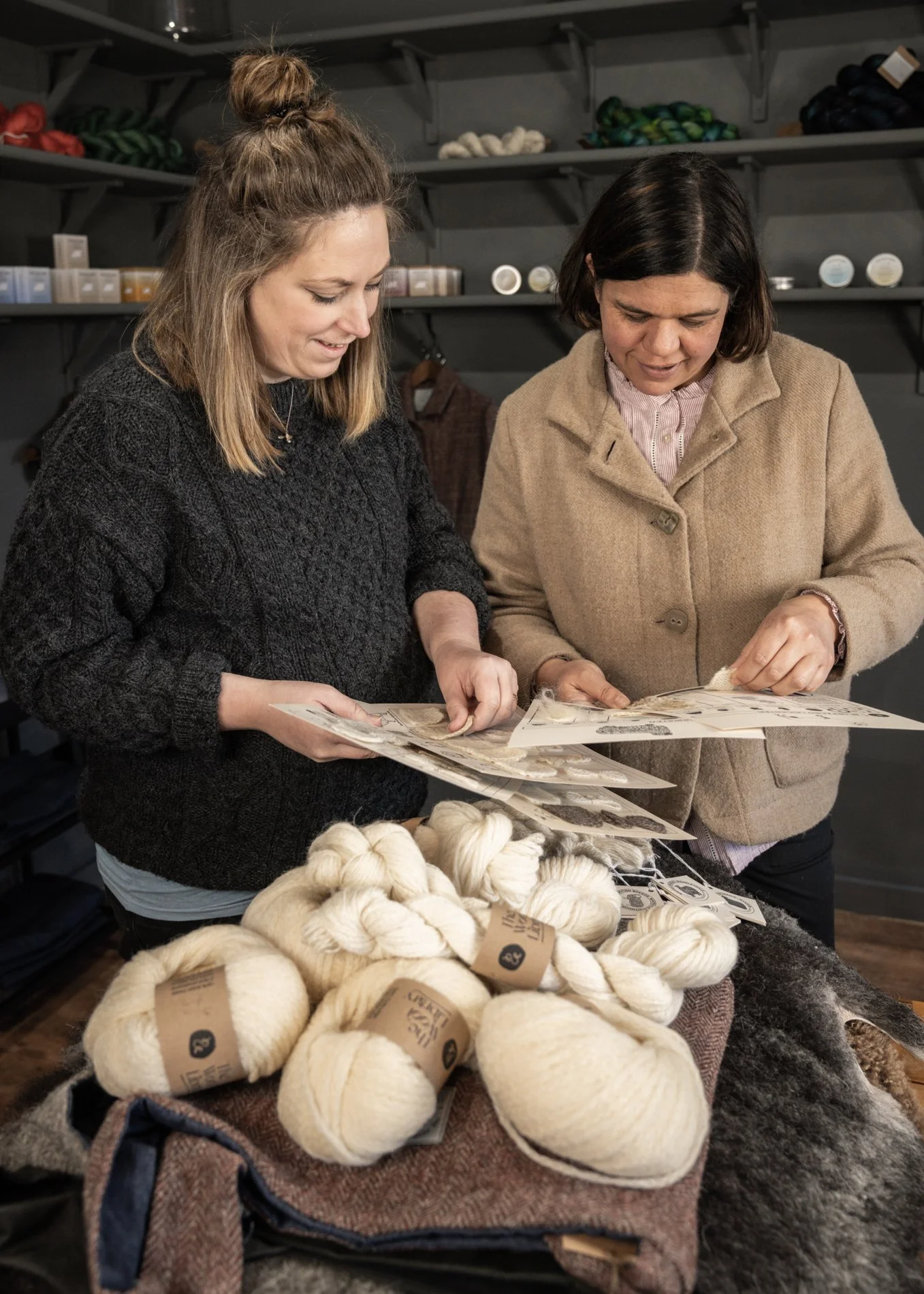The Wool Library
Wool Collective
We are farm-based wool entrepreneurs and wool specialists and we work across the entire wool system; land management, farming, buying, designing, selling value-led products and we consult others to do the same. We build the right relationship with farmers by paying the right price, providing education and providing regenerative farming tools to gather data on carbon, biodiversity, and soil health.
What is so amazing about working with British wool? Material matters - for designers, brands and manufacturers seeking sustainable material solutions, British wool knows no bounds. Wool is a natural, versatile, durable, biodegradable, technical, and circular fibre, and we love working with this innovative material to regenerate our wool industry for generations to come, with centuries behind us. The stories wrapped into the livelihoods of our farmer friends and their strong connection to the land and different breeds across the geographical landscape makes British wool hard to beat.
If any/ what have been your challenges with working with British wool and a local way of working? Scale and minimum orders make creating small experimental collections of yarns a challenge to balance from an economic and time perspective - we KNOW the value is there but working with such different methodologies is not easy and doesn’t fit into the conventional fashion system, however the possibilities for wool playing a pivotal role in changing systems is exciting.
We have found that many brands want to work with British wool (or the idea of British wool) but are disconnected from the material properties and to the realities of the farming landscape and timescales involved in producing bespoke yarns, this is before bringing price points and archaic business methods into play that don’t support regenerative principles and value chains other than lowest point monetary value.
What gauge of Knitwear do you sell? i.e fine gauge 10-12gg or more chunky knits such as 7-5gg We predominantly focus on hand knit/machine knit yarns which range between 2.5gg and 7gg
Do you finish onsite? If not, is it convenient or what would be your ideal situation? We have recently invested in an on-farm commercial knitting machine which will allow us to experiment with and sample our fully traceable British wool yarns, as well as allowing us to open this resource up to other farmers yarns who have taken the first step in creating a valued co-product from their fleeces and want to test how it can be used to create products for a larger sector of consumers.
Do you find a lot of push back in the industry in terms of working with British wool? There are still a lot of preconceptions about the quality and characteristics of British wool and how it can be used yes, but this drives us to showcase it’s versatility and the necessity of re-educating consumers.
We have had to build up trusted relationships with our industry partners across the production chain, and understand how to communicate our wants and needs effectively, localised is not always easy when industry has been used to globalisation for so long.
Do you find that customers are becoming more interested in British wool? Yes, from a rich story-telling perspective as well as re-connecting them to a more honest way of appreciating materials and clothing.
On a scale of 1- 10 (1 being the lowest and 10 excellent) how much do you think your business has improved in the below areas as a result of good working practices and environmental standards?
We have strived for these right from the beginning:
Waste Production (off-cuts, production) - 10
Plastic Pollution (packaging) - 10
Water Wastage (dyeing and finishing) - 10
Energy Consumption (shipping, machinery etc)- 10
Do you have any hero farmers or people in your supply chain you would like to highlight?
Joyce Campbell at Armadale Farm (on instagram)
Heatherlea Black Cheviots (on Instagram)
RBST (Rare Breed Survival Trust) (on Instagram)

